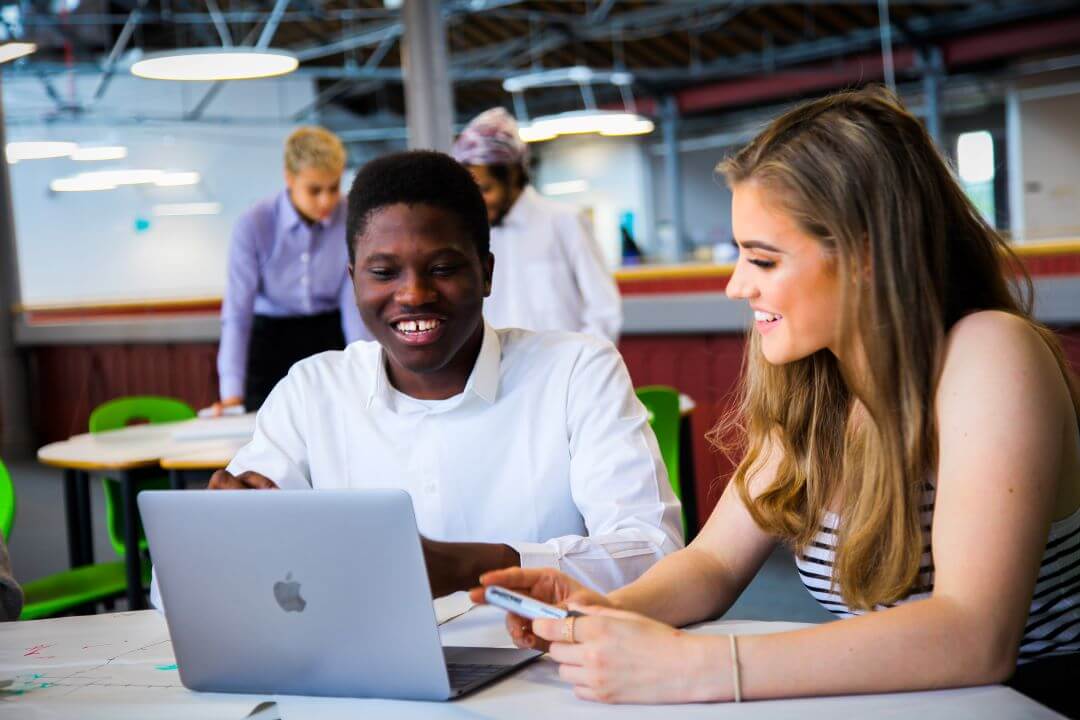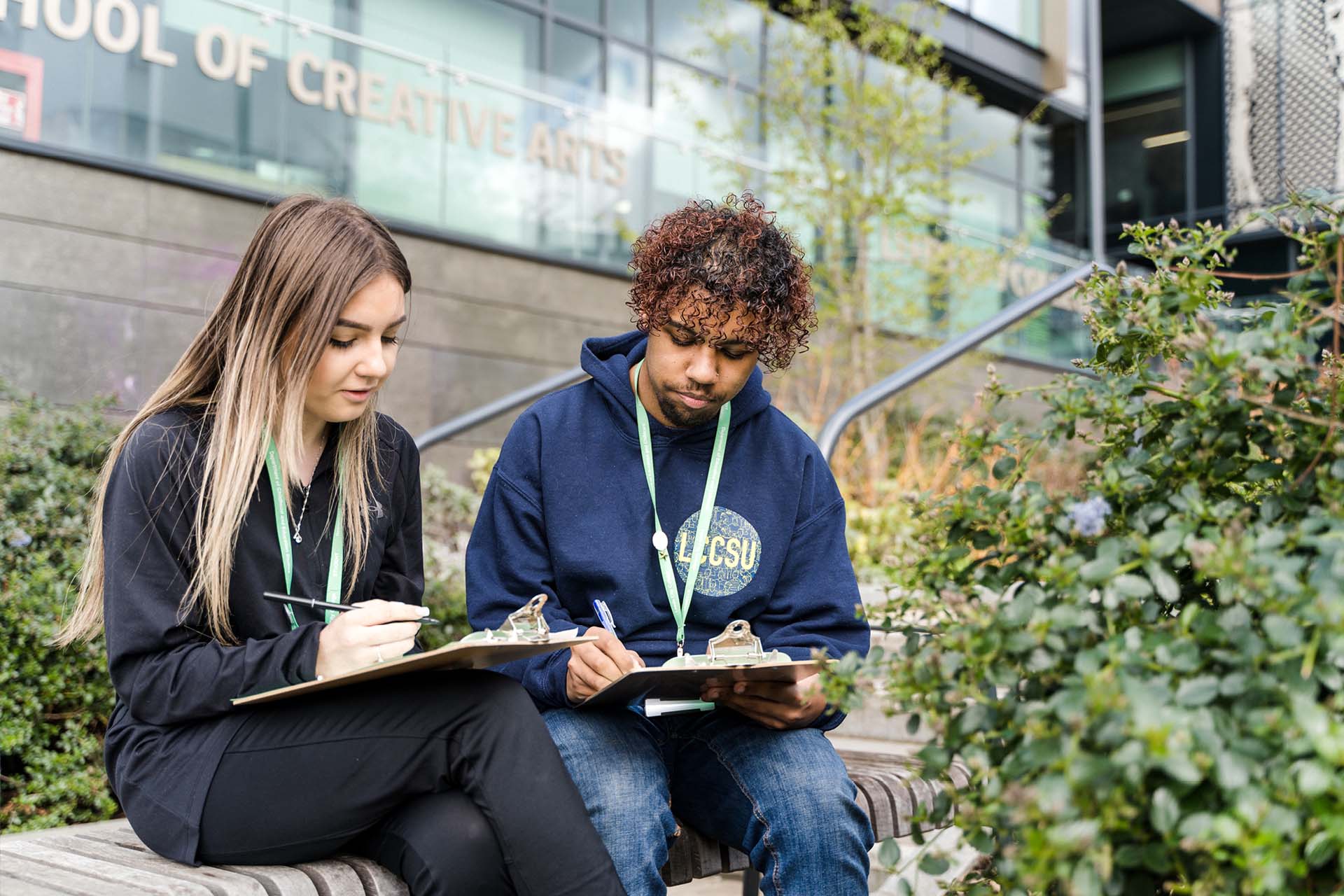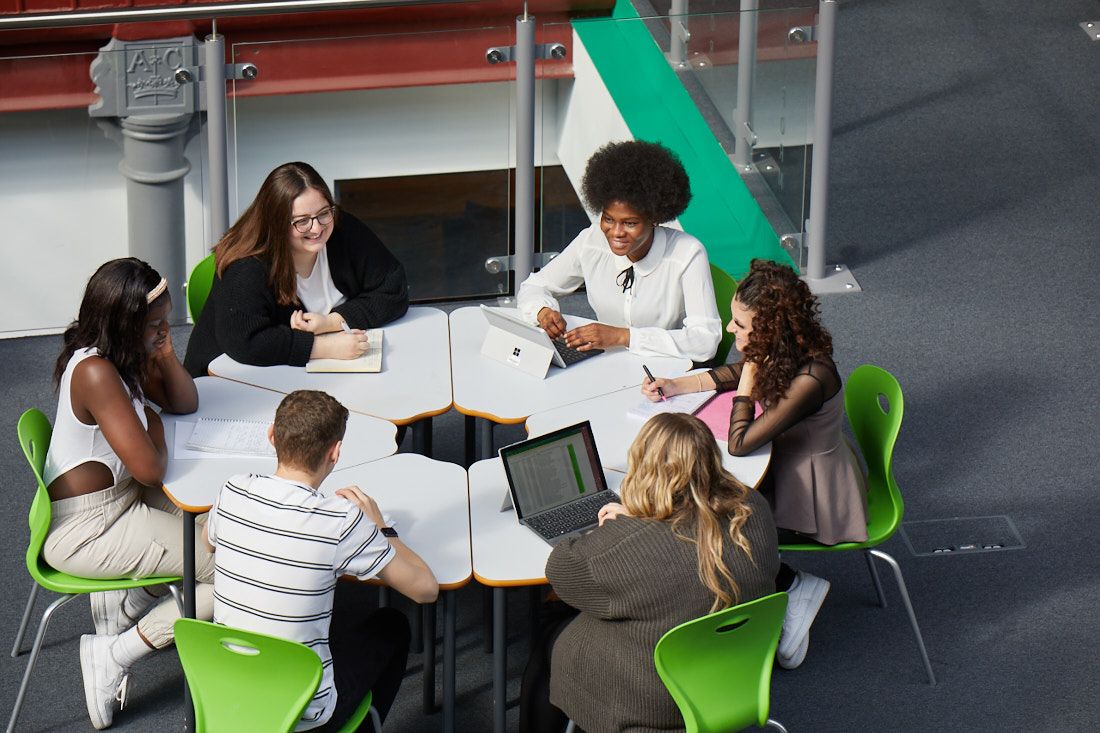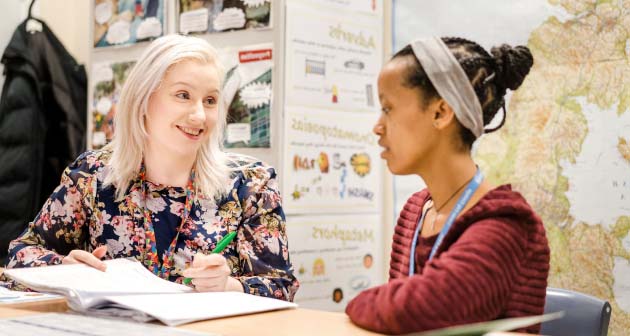Careers, Work Experience and Progression
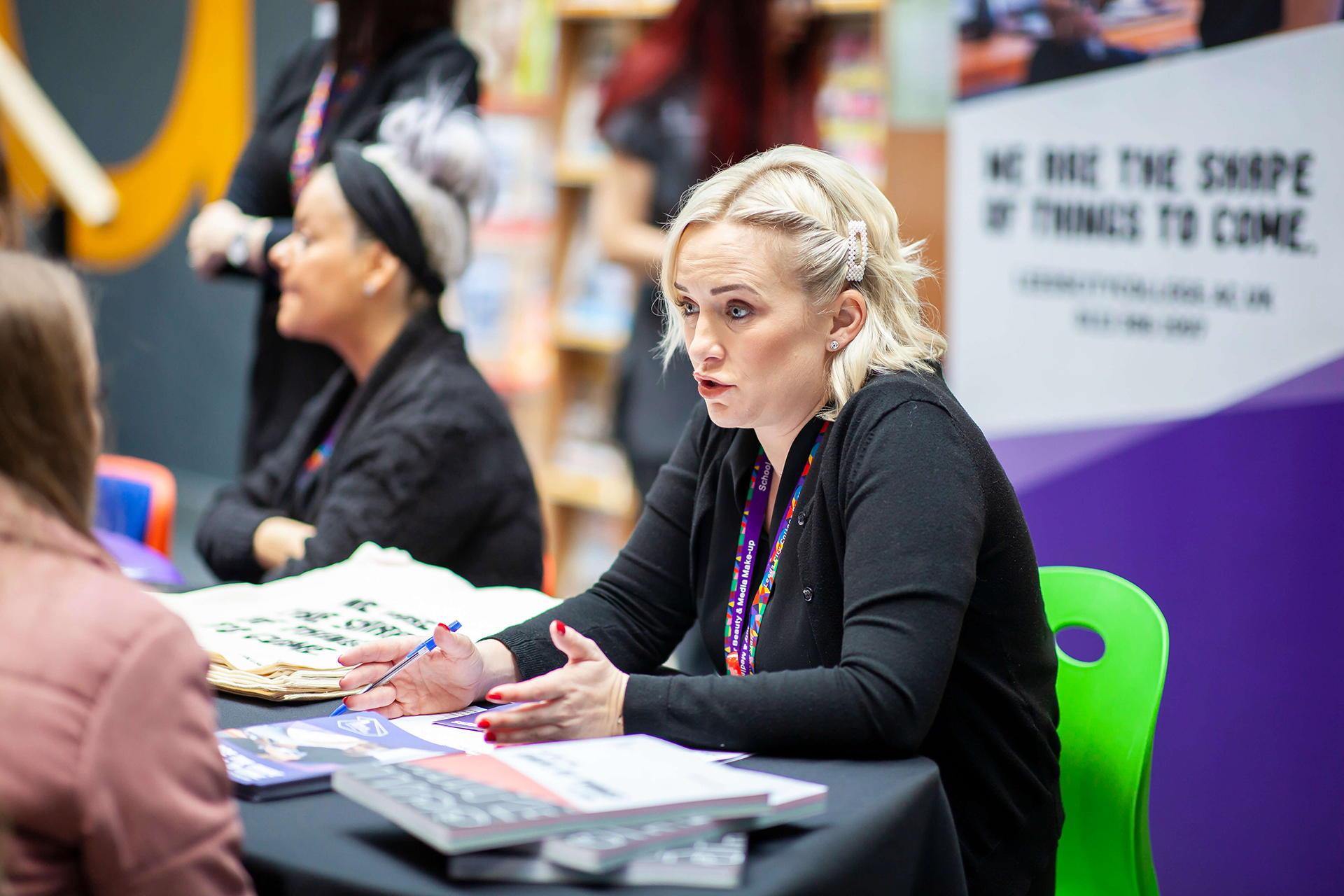
How our Careers Service can help you
The college Careers team is here to help you make informed decisions and to help you plan the next steps towards your future. From applying to work, university or apprenticeships or working out your interests, skills and aspirations, our Careers Advisers can provide you with the information, advice and guidance you need.
We are pleased to have achieved both the Matrix Standard and Quality in Careers Standard to ensure our work is of the highest quality.
Leeds City College works in partnership with the National Careers Service. Their website has great careers information and a telephone helpline that anyone aged 13 and over can use: Monday to Friday 8am-8pm and Saturday 10am-5pm.
Work experience
As part of your study programme at college, you will be required to undertake work experience to gain an insight into the world of work. Work experience is unpaid but there are lots of benefits, as you’ll be working and learning alongside people who are very knowledgeable and experienced in the field you might want to go into.
These are the types of work experience you might undertake:
- Work placement – working as a member of the team in a workplace for 1 or 2 weeks
- Industry placement – working as a member of the team in a workplace for at least 45 days (if you are studying a T Level qualification then you will undertake an industry placement)
- Work taster visit – a group visit to a workplace to find out about working life
- Virtual work experience – undertaking virtual work-related activities on the virtual work experience site
- Simulated work environment – undertaking work-related activities set by an employer
- Social action project – undertaking a project to benefit the community
- Student enterprise – running a student-led business
Your tutor will let you know which type of work experience you will be undertaking.
-
How do work placements and industry placements work?
A member of the work experience team will visit your class to talk you through the process. This is a great opportunity to ask any questions you may have. You can either find your own work placement, or tap into the bank of placements that the business engagement team source.
Once you have a placement confirmed, you will arrange a pre-placement visit with your employer so that you can meet the people you will be working with, practise travelling there, and find out important information such as the hours you will be working and what you need to wear. You will then attend your placement on the agreed days.
You will be using an online platform called Start – Digital Career Platform to log your placement. Learn more about Start – Digital Career Platform here.
-
Why do work experience?
Work experience gives you the chance to step into the world of work and apply your skills in a work setting.
If you’re studying a T Level qualification then you must complete an industry-specific placement to achieve your qualification.For some, work experience is the first time working for an organisation. You’ll get hands-on learning in a working environment and will see what is expected of you in a workplace context.
As well as first-hand experience, your work experience develops the skills you’ll be talking about in job interviews, or on your personal statement, should you want to go to university. You’ll be able to provide workplace examples that will highlight your knowledge and skills.
When applying for jobs in the future, those who have completed work experience can ask the employer for a reference. Students who have shown exceptional work ethic and commitment during their work experience are occasionally offered part-time jobs. This will enable you to continue to develop your skills alongside studying your qualification at college.
-
International work placements
A smaller number of students have the opportunity to complete funded vocational and study placements overseas.
These placements generally last for two weeks and are reliant on the partnership work between the college and international partners in education and industry. The college also hosts international visiting students and staff.



